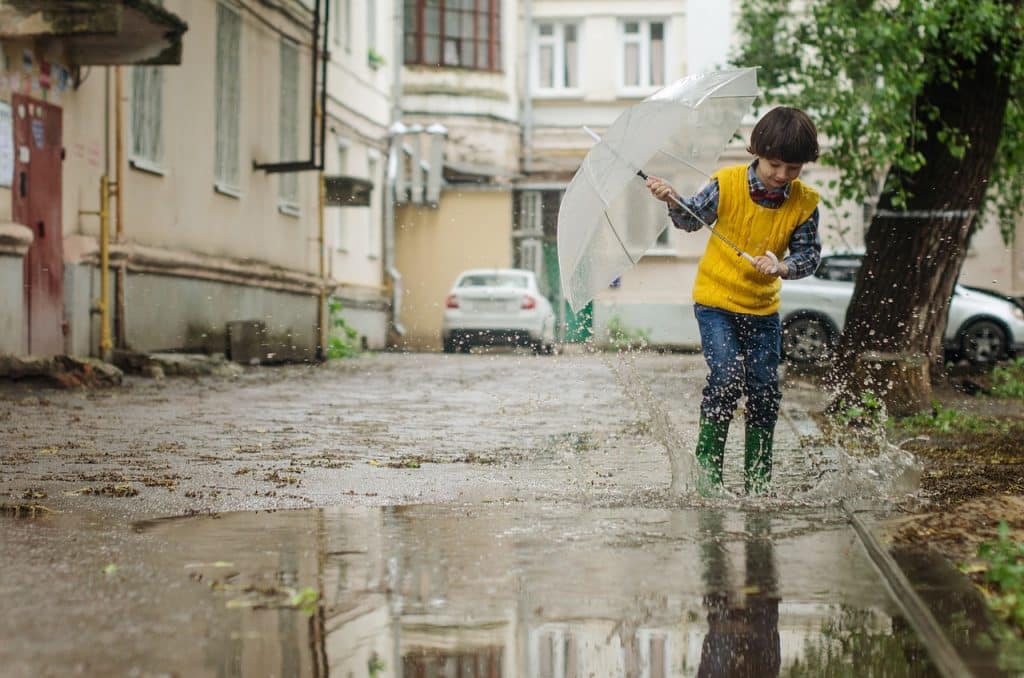Moving can be one of the best things to happen to anyone – be it a family moving to a new home, a team moving to a new office, or even a manager opening a new company branch. However, not all conditions are always “right” for moves, as many unexpected things can happen. These events can include weather events that may interrupt a move. As such, it’s also important for clients to ask: do moving companies work in the rain?
Before fully pushing through with your move, it’s important to be aware of rain and other weather conditions that may interrupt the moving process. Should rain or other weather phenomenon happen in the process of the move, here are some considerations:
- Coordinate early on regarding moving in bad weather. When you plan on conducting a move, it’s advisable for you and the movers to check weather reports to identify the chance of rain during moving day. While it’s not possible to predict exact weather conditions for a particular day, it helps to at least have an idea of what conditions you might experience throughout the move so movers can give general advice as to what should be done to have a pleasant moving experience.
- Generally safe in light rain. Movers are generally safe to operate during light rain, as there won’t be any chances of extensive damage to their moving trucks or obstructions in the road such as fog and potential hazards. In this case, a rainy day move might be advisable but only if the rain is very light and there aren’t any obstructions to the truckers’ views.
- Moderate and strong rains should be avoided. Unfortunately, while most moving trucks may be versatile and durable for most conditions, moderate and strong rains still remain unadvisable for house moves. Aside from heavy raindrops obstructing paths, things such as fog, rockslides and landslides, and even slippery roads can create road hazards that may lead to accidents. Warnings will usually be declared days prior to actual thunderstorms and strong rain, so watch out for these warnings.
- Snow and sleet during rain should be avoided. Another possible condition to encounter during the move would be rain accompanied by sleet and snow, which again should be avoided as much as possible. While most local authorities will place guidelines and special protections on the road during these conditions, it’s unadvisable to conduct a move during this weather. Ice and snow can block roadblocks and potential hazards, while the cold might affect the durability and condition of the truck.
- Reschedule during the storm and other harsh conditions. While it’s nice to be able to move anytime, situations such as storms, typhoons, and even hurricanes should signal that it’s better for you to reschedule your move instead. These weather conditions can cause significant damage to the moving truck and other equipment, which may then damage your belongings.
- Recheck the policies of your moving companies. Once you’ve hired professional movers, you should also make sure to check their policies regarding moving in different kinds of weather, especially in terms of their insurance policies. What precautions are they taking to make sure your belongings stay safe when moving in various weather conditions? What are their policies when rescheduling moves due to unforeseen weather situations? What are their safety guidelines to make sure you can move safer in any weather?
If you want to push through with your move:
- Check the condition of moving equipment. If you and your movers decide to push through with the house move in the rain, you should first make sure both your belongings and moving equipment check out. This means your movers should position the moving truck as close to the house as possible. Likewise, the interior of the moving truck should be made as dry as possible.
- Coordinate movement. Movers should also coordinate in terms of positions, with some of them inside the house and some outside so cardboard boxes can be passed around without risking damage to wooden floors and carpets, and so that we can avoid muddy footprints in the house. If possible, they can help wrap your belongings in a way that movers recommend so they avoid as much moisture as possible.
- Make sure your belongings are properly packaged. If you’re pushing through with your move, then make sure your furniture and belongings are properly packed and covered. If possible, furniture should have moving pads and then covered with plastic wrap or shrink wrap to make sure they won’t get wet from the rain. This also goes for trash bags and other materials, as inclement weather might affect the durability of these packaging materials.
With the above taken into consideration, it’s important for homeowners to clarify with their respective moving companies as to the kind of conditions allowed for their move. While most families will want to push through with their house move (or companies and their office moves, for that matter), it’s not always ideal to pursue moving during at-risk conditions such as rain and other dangerous weather. It’s recommended for clients to always consult with their movers regarding what conditions are safe for moves so they can plan accordingly.


